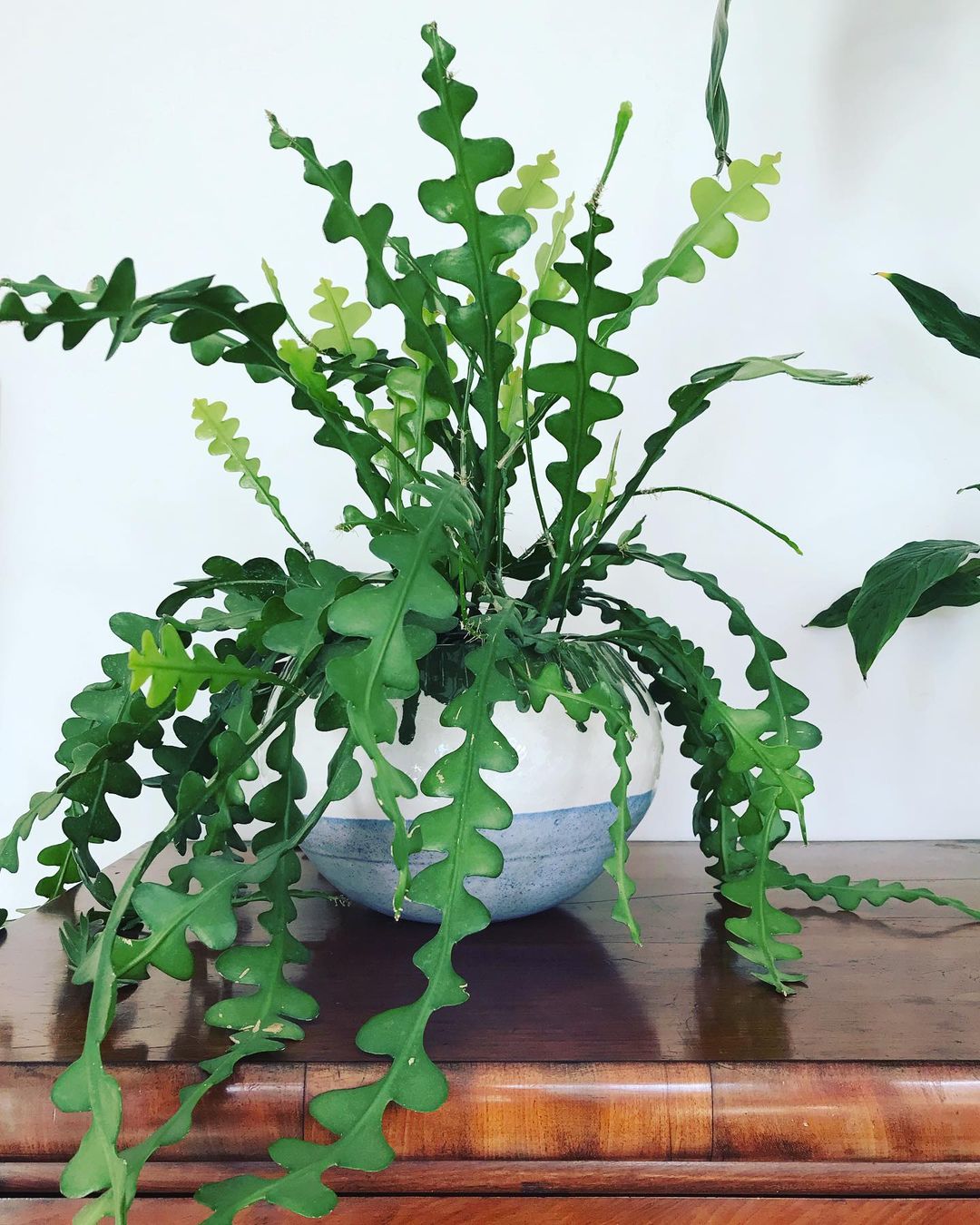Learn how to care for your Fishbone Cactus with tips on propagation, blooming, and pet safety. Perfect for beginners and seasoned plant lovers!
Hi, I’m Ashley Scott, and over my 10 years of gardening, I’ve fallen hard for the quirky charm of the Fishbone Cactus (Epiphyllum anguliger). With its zigzag stems and dramatic blooms, this cactus is a showstopper—but don’t let its exotic looks fool you! It’s surprisingly low-maintenance, even for busy plant parents. Whether you’re wondering about propagation, blooming tricks, or why your cactus looks a little sad, I’ve got you covered. Let’s dive in!
What Is a Fishbone Cactus?
The Fishbone Cactus, also called Ric Rac Cactus or Zig-Zag Cactus, is a tropical succulent native to Mexico’s rainforests. Unlike desert cacti, it grows as an epiphyte, clinging to trees in its natural habitat. Its flat, serrated stems resemble fish skeletons (hence the name!) and can produce fragrant, night-blooming flowers.

Quick Facts:
- Scientific Name: Epiphyllum anguliger
- Toxicity: Non-toxic to cats and dogs (whew!).
- Lifespan: With proper care, it thrives for decades.
Fishbone Cactus Care 101
Light Requirements
- Bright, Indirect Light: Think dappled sunlight—like under a tree canopy. Direct sun scorches leaves, while low light slows growth.
- Pro Tip: Mine sits 3 feet from an east-facing window and thrives!
Watering
- How Often?: Water every 1–2 weeks in summer when the top 2 inches of soil dry out. Reduce to monthly in winter.
- Avoid: Soggy soil! Use a well-draining mix (more on that below).
Soil & Potting
- Mix: 50% potting soil + 50% orchid bark or perlite. Add a handful of compost for nutrients.
- Pot: Terracotta pots with drainage holes are ideal.
Temperature & Humidity
- Temp: 60–80°F (no drafts!).
- Humidity: 50–60%. Mist weekly or use a pebble tray.
How to Propagate a Fishbone Cactus
One of my favorite projects! Here’s how I propagate mine:
- Cut a Healthy Stem: Use clean shears to snip a 4–6-inch section. Let it callus for 1–2 days.
- Plant: Stick the callused end into moist cactus mix.
- Wait: Roots develop in 3–4 weeks. Keep soil lightly moist.
Pro Tip: Propagate in spring for faster results. Share cuttings with friends—they make great gifts!
Getting Your Fishbone Cactus to Bloom
When Do They Bloom?
Mature plants (3+ years old) bloom in late fall or winter, often at night. Flowers last 1–2 days but are worth the wait!
Encouraging Blooms
- Cooler Nights: Expose to 50–55°F temps in fall.
- Reduce Water: Let soil dry more between waterings in autumn.
- Fertilize: Use a phosphorus-rich fertilizer (like 10-30-20) monthly in spring/summer.
Common Fishbone Cactus Problems (With Solutions!)
Yellowing Stems
- Overwatering: Let soil dry completely before watering again.
- Root Rot: Repot in fresh soil and trim mushy roots.
Leggy Growth
- Not Enough Light: Move to a brighter spot. Use a plant stake to support weak stems.
Pests
- Mealybugs: Wipe with rubbing alcohol.
- Spider Mites: Spray with neem oil.
Note: Check my guide on USAGardenHub.com for more pest fixes.
Is the Fishbone Cactus Safe for Pets?
Great news! According to the ASPCA, Fishbone Cacti are non-toxic to cats and dogs. My cat, Whiskers, has nibbled a stem or two with no issues—though I keep mine on a high shelf just in case!
Where to Buy a Fishbone Cactus
- Online: Find healthy plants on Etsy or The Sill. Prices start around 15–15–30.
- Local Nurseries: Ask for “fishbone cactus for sale” at specialty succulent shops.
Budget Hack: Buy a small plant—they grow fast!
FAQs About Fishbone Cactus
Q: Can I grow it in low light? A: It’ll survive but won’t bloom. Opt for bright, filtered light.
Q: Why are my stems turning red? A: Sun stress! Move it away from direct sunlight.
Q: How tall does it get? A: Stems can trail up to 3 feet—perfect for hanging baskets!
Final Thoughts
The Fishbone Cactus is a forgiving, eye-catching plant that’s perfect for tabletops or hanging displays. For more tips, explore my guides on USAGardenHub.com about pet-safe plants and succulent propagation.
Ready to try growing one? Grab a cutting, channel your inner plant parent, and enjoy this tropical gem’s quirky vibes!
References: ASPCA, Epiphyllum Society, Royal Horticultural Society, University of Florida IFAS Extension.

